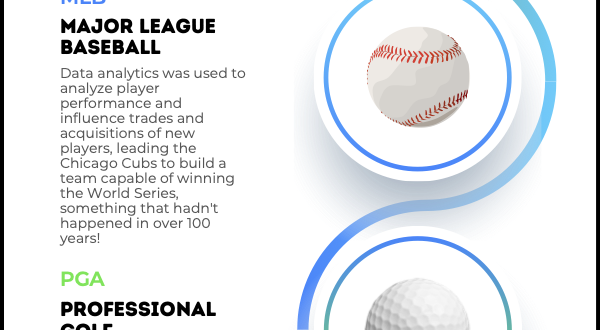Have you ever wondered what goes on behind the scenes to make athletes perform at their peak? It’s not just raw talent and hard work; increasingly, it’s about data. Sports performance analytics is becoming a game-changer, and universities are catching on. Now, you can actually major in it! Let’s dive into this fascinating new field of study.
What is Sports Performance Analytics?
Defining the Field
Okay, so what is sports performance analytics? Basically, it’s using data to understand and improve athletic performance. We’re talking about collecting information, running stats, and visualizing all that data to get real insights. Think Moneyball, but, you know, way more advanced. It’s about finding those little edges that can make a huge difference. Not bad, right?
Key Areas of Focus
The cool thing is that it’s not just one thing. There are a bunch of different areas you might focus on. For example:
- Player Tracking and Biomechanics: Imagine analyzing how an athlete moves to improve their technique and avoid injuries. Pretty high-tech!
- Game Strategy and Opponent Analysis: This is like being a super-powered scout, figuring out the other team’s weaknesses and planning accordingly.
- Injury Prediction and Prevention: Can you predict an injury before it happens? Sports performance analytics tries to do just that.
- Performance Enhancement: Tailoring training programs based on data to get the best possible results.
The Curriculum of a Sports Performance Analytics Major
Core Coursework
So, if you decide to major in this, what would you actually study? Expect a mix of things. I mean, you’ll definitely need:
- Statistics: Because, duh, it’s all about the numbers!
- Data Science: Coding, data mining… the whole shebang. You’ll probably be best friends with Python or R.
- Sports Science: Gotta understand the human body, right? Anatomy, physiology – the works.
- Sports Management: Because you need to know how the sports world actually works, not just the data side of things.
Specialized Electives
But it’s not all just the basics. You’ll get to dive deeper into things that really interest you. Want to focus on biomechanics? Go for it! Interested in a specific sport? There’s probably a class for that. Maybe you’ll take something like machine learning for sports? Or sports economics?
Hands-on Experience
Let’s be real, classroom learning is only half the battle. You’ll definitely want to get some real-world experience under your belt. Internships with sports teams or research projects are where it’s at. That’s where you’ll really learn how to apply what you’ve been studying.
Career Opportunities for Graduates
Professional Sports Teams
Okay, dream job alert! Working for a pro team as a performance analyst. Analyzing data, helping coaches make decisions… Living the dream, right? You could be a data scientist or even a scouting analyst. Talk about a cool job.
Sports Technology Companies
But it’s not just teams. There are tons of companies out there making sports analytics software and gadgets. You could work on the tech side, developing new tools and analyzing data. Think about it – product management could be your thing.
Training Facilities and Performance Centers
Maybe you’re more into working directly with athletes. You could join a training facility and help them optimize their training programs using data. That’s a pretty direct way to make an impact, wouldn’t you say?
Research Institutions
Or, if you’re more academically inclined, you could do research. Study sports performance, publish papers, and contribute to the field. It is an option, right? You might even end up teaching the next generation of sports performance analysts!
The Impact of Sports Performance Analytics
Improved Player Performance
The bottom line? This stuff works! Data helps coaches personalize training, improve technique, and ultimately boost player performance. It’s like having a cheat code, almost.
Enhanced Game Strategy
Imagine knowing exactly what the other team is going to do before they do it. Okay, maybe not exactly, but analytics can give you a serious edge in understanding their strategies and tendencies. It’s like chess, but with, you know, athletes.
Reduced Injuries
This is a big one. By spotting potential problems early, sports performance analytics can help prevent injuries. Keep the athletes healthy, keep them on the field. Everybody wins!
Greater Competitive Advantage
At the end of the day, it’s about winning. Teams that use sports performance analytics effectively gain a significant competitive advantage. They make smarter decisions, they train smarter, and they play smarter.
So, there you have it. Sports performance analytics is a real thing, and it’s changing the game. If you’re into sports and you’re good with numbers, maybe this is the major for you. Why not give it a shot? Who knows, you might just be the one to discover the next big breakthrough in sports. It sounds like a pretty wild ride to me!
 Cloudabouts
Cloudabouts




